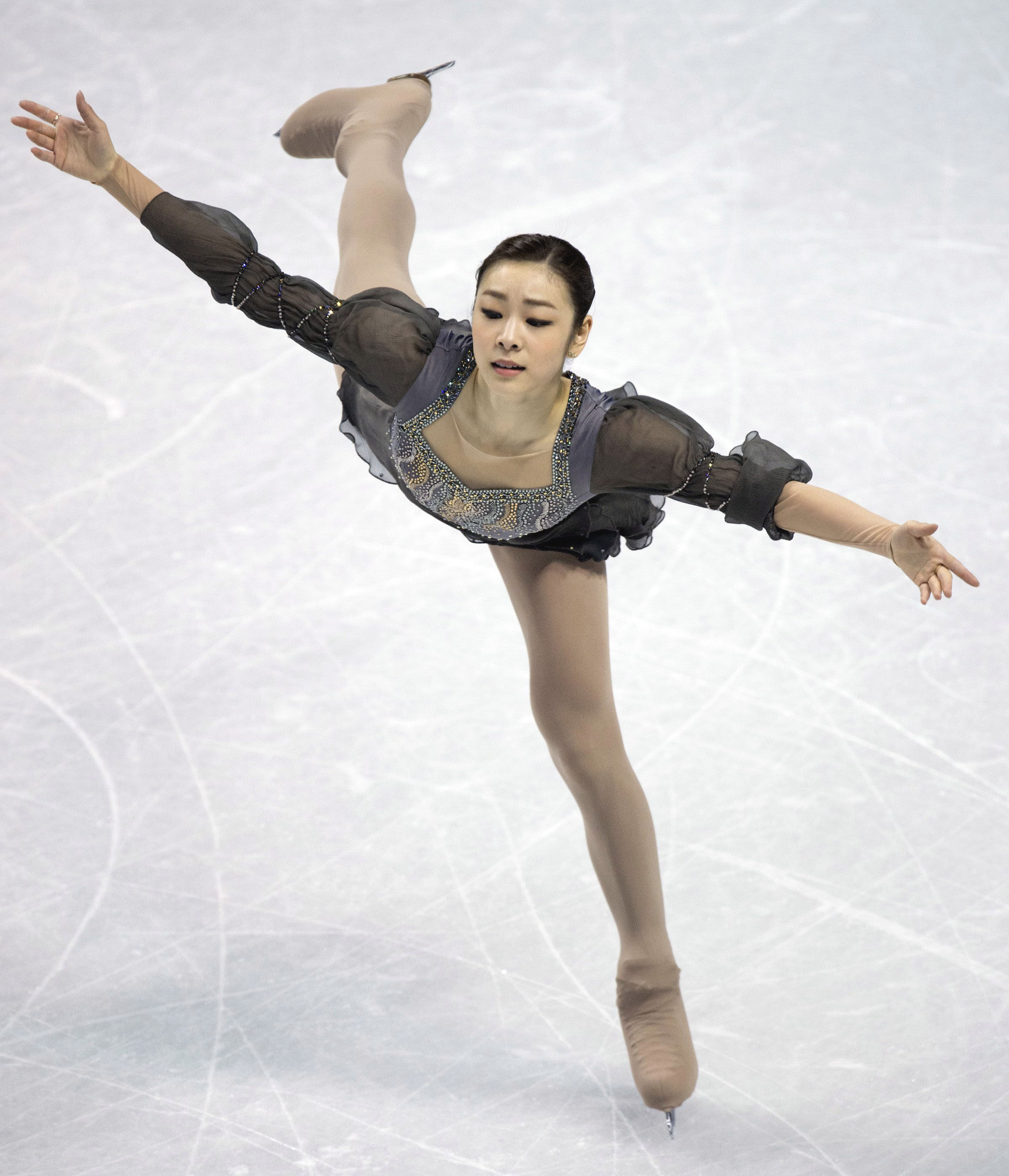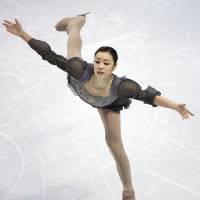It is as if time has stood still.
Three years after her record-setting performance in winning the gold medal at the Vancouver Olympics, Kim Yu Na put on a sensational show in capturing her second world title last week in London, Ontario.
It was an incredible display of technique and artistry as she glided to a runaway win over Italy's Carolina Kostner and two-time world champion Mao Asada in dominating fashion.
Kim, who won her first world title in 2009, was competing in only her second major international competition since Vancouver. That seemed like only yesterday, which is nothing short of amazing.
Three years in figure skating can be like a lifetime. Fortunes rise and fall as injuries occur and new faces emerge. But after her show-stopping effort at the worlds, it looks like Kim is going to be very difficult to beat at the Sochi Games next year.
Barring injury or something out of the ordinary, Kim is now a prohibitive favorite to retain the gold and become only the second skater (after Germany's Katarina Witt — 1984, 1988) to win consecutive Olympic golds in the modern era.
Norway's Sonja Henje won three straight Olympic golds (1924, 1928, 1932) in what was a much different time for skating.
"We can't predict what will happen at the Olympics, but I will do my best and hope for good results," Kim said following her victory.
It's not just that Kim is winning in her return, but how she is doing it. There is nothing more deflating to an opponent than being completely routed in an athletic competition. This is even more pronounced when it is an individual sport.
Kim is clearly relishing the chance to compete again after a break of 18 months when she became the face of Pyeongchang's successful bid to host the 2018 Olympics.
"I'm happy to have performed at my best during what will likely be my last worlds," Kim stated. "It was the happiest world championships for me, and the memory of this competition will stay with me for a long time."
So the question now is this: Can Mao challenge Kim for the gold medal in Sochi or is it fait accompli?
To have a chance, Mao is going to require a triple-triple combination jump that she can land consistently. That is actually more important than her patented triple axel, which she has had difficulty with the past couple of years.
Mao is going to have to eliminate all mistakes, skate cleanly, and hope that Kim stumbles. Stranger things have happened. A rut in the ice — like Mao stumbled on in Vancouver — could make the difference.
"This was not my best performance, but the process to come to this level was pretty good," said Mao. "At this moment I made mistakes. I will try to compete with Yu Na without mistakes."
Kanako Murakami's fourth-place finish in London, one place better than at last year's worlds, was encouraging. She has been inconsistent the past couple of seasons, so it was good to see her excel on a such a big stage.
With a bit more refinement, the 2010 world junior champion could factor in the medal picture in Sochi.
"I think I can improve my techniques, spins and expressions," noted the 18-year-old Murakami. "For next season I want to make my best performance in each competition to earn the Olympic berth."
Akiko Suzuki's disappointing 12th-place finish calls into question her chance of earning one of Japan's three spots for Sochi. After claiming the bronze at last year's worlds, it was a surprise to see Suzuki fall this far, this fast.
One has to wonder if two-time world champion Miki Ando, who has sat out the past two seasons but is still only 25, might be influenced by the results at the worlds. Ando had an incredible season when she won her second world title in 2011, beating Kim for the gold in Moscow.
The feeling here is that Ando is fairly confident she is still one of the top five skaters in the world, and would relish a chance to go after that elusive Olympic medal she does not own.
Making a career: It was great to see former elite skater Yukari Nakano during the recent IOC Evaluation Commission visit for Tokyo's 2020 Olympic bid. Nakano was ever present during the four-day event in her role as an assistant director for Fuji-TV's Sports News program.
Nakano, now 27, retired three years ago after narrowly losing out to Suzuki for the final Olympic berth for Vancouver. The Aichi native didn't let the disappointment get her down, and has been quietly building a career with the television network the past three years.
Still sporting the radiant smile that was one of her trademarks, Nakano remains one of only six women to have landed a triple axel in international competition.
















With your current subscription plan you can comment on stories. However, before writing your first comment, please create a display name in the Profile section of your subscriber account page.